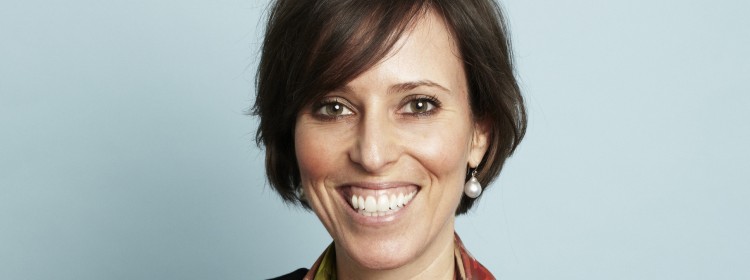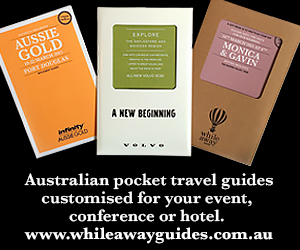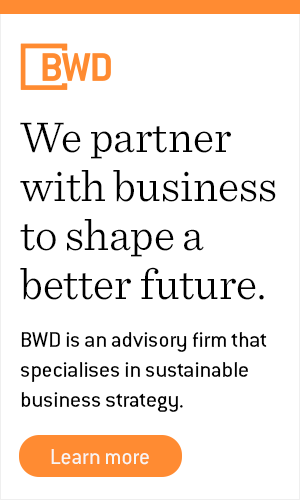In a world in which clients expect more and more, events industry professionals must stay connected to gain the insights they need to feed a winning strategy, says the General Manager of Business Events Australia. In this interview with the Siteseer, Penny Lion discusses the challenges and opportunities involved in selling Australia, the rise of China and the need, now more than ever, for meaningful communication.
Siteseer: How do you differentiate your marketing strategies from the rest of the world’s?
Penny Lion: It’s what brings us to work every day! We’re always trying to do something different. In this day and age the tourism business is so competitive, and within the business events sector it’s even more so because it’s high-yield and everybody wants their share. It’s also quite a fast-paced industry.
 So if you bring out a brand-ad campaign or embark on a particular trade or marketing strategy, it’s not long before it gets noticed and followed. How do you manage that? For Tourism Australia the focus is always on what will make a difference for the customer, about thinking and knowing what it’s like to be an events planner, or a corporate or association congress decision maker. You’ve got to keep your ear to the ground and stay connected, and always deliver to their needs.
So if you bring out a brand-ad campaign or embark on a particular trade or marketing strategy, it’s not long before it gets noticed and followed. How do you manage that? For Tourism Australia the focus is always on what will make a difference for the customer, about thinking and knowing what it’s like to be an events planner, or a corporate or association congress decision maker. You’ve got to keep your ear to the ground and stay connected, and always deliver to their needs.
SS: Do you do that better than the opposition?
PL: I believe so, though we can always do better. Tourism Australia is widely seen as punching above its weight, and that applies to Australia in general. Our competitors at big trade shows come up to us and say they watch what we’re doing and think we do it extremely well, which is a great compliment.
Our work isn’t rocket science; we apply good old-fashioned business sense to what we do and in positioning Australia. Also, Australia is unique, though that word is often over-used. It has an incredible array of attractions.
Much of our job is to convert latent demand, because we pitch in at number one or two on everyone’s bucket list. From a corporate incentive point of view, coming to a long-haul destination is perceived to be problematic, and [there are factors like] lack of annual leave or other perceptions that make people wonder whether coming to Australia is the right thing.
SS: So how do you overcome the perception Australia is a long-haul destination, and an expensive one?
 PL: When you think about barriers to entry, time difference and cost are the things people obviously look at when they’ve got budgets and time frames to manage. But the key is always proving the business case, and we know Australia delivers and adds tremendous value. When events visitors get on the aircraft they may realise it’s not as onerous a journey as they’d first imagined. And once they’re here the experience is great. No one ever leaves Australia saying it was so far away. They go home saying it was the most memorable experience they’ve had.
PL: When you think about barriers to entry, time difference and cost are the things people obviously look at when they’ve got budgets and time frames to manage. But the key is always proving the business case, and we know Australia delivers and adds tremendous value. When events visitors get on the aircraft they may realise it’s not as onerous a journey as they’d first imagined. And once they’re here the experience is great. No one ever leaves Australia saying it was so far away. They go home saying it was the most memorable experience they’ve had.
That’s what we’re trying to deliver on, the emotional connect we’re looking for. We can’t change where we are.
SS: Do you think Australia unfailingly delivers a great experience?
PL: I do, across the board. It’s stating the obvious perhaps, but it’s a multi-destination country. People might come as first-time visitors to an event in Sydney, and connect with the Whitsundays. The next time they might go to Perth and Darwin. There are so many experiences, and they can have variety, time and again.
People are incredibly important in this equation, and Australians generally are down to earth, and we don’t over-promise and under-deliver. When business tourists get here they find we’re also people who don’t say no very often. We make it happen. Decision makers and competitors in the business events industry around the world see that, and it’s a big tick.
SS: You don’t believe there’s a perception that its infrastructure and hotels sometimes don’t match what Asia has to offer, for example?
 PL: I think what’s happening across China, in particular, is incredible. The size of their infrastructure – how can anybody really compete with that? But in Australia there’s been strong investment over the past few years. Hotels have been popping up, and they’re differentiated. They’re not all five-star. Some are quite unusual in the boutique experiences they offer. In Brisbane, for example, some of the new hotels are quirky, with beautiful artworks from local artists. It’s a different experience.
PL: I think what’s happening across China, in particular, is incredible. The size of their infrastructure – how can anybody really compete with that? But in Australia there’s been strong investment over the past few years. Hotels have been popping up, and they’re differentiated. They’re not all five-star. Some are quite unusual in the boutique experiences they offer. In Brisbane, for example, some of the new hotels are quirky, with beautiful artworks from local artists. It’s a different experience.
Beyond that every capital city has been building new infrastructure as part of our Tourism 2020 strategy, ensuring that, with the industry, we’re introducing additional dollar investment, more hotels and more air capacity. That’s been happening across the board. The convention centres, too, have been undergoing big improvements.
SS: Well nearly every major Asian city has or is building a congress centre. How challenging is it for Australia to lure business to our own?
PL: It’s not just every Asian city, it’s every city in the world. It’s seen as a high-yield sector. In Nigeria recently an incredible convention centre opened. Just about everybody now has one, and new infrastructure is constantly being created. Where I believe Australia does incredibly well is in the fact that we have outstanding convention facilities that are mostly within walking distance of city centres. Think about Brisbane, Sydney, Melbourne; the facilities are in the heart of the city.
 One of my colleagues in America recently had to commute between a hotel in a city and its closest convention centre, and it took two hours each way. We don’t have that problem. Also, the food and beverage offering we have in our convention centres is outstanding, as are the AV and other services. You don’t get the same holistic services in many others around the world.
One of my colleagues in America recently had to commute between a hotel in a city and its closest convention centre, and it took two hours each way. We don’t have that problem. Also, the food and beverage offering we have in our convention centres is outstanding, as are the AV and other services. You don’t get the same holistic services in many others around the world.
SS: Are you happy with the new Sydney convention centre that’s taking shape?
PL: Absolutely. It has attractions like open-air-events spaces, and again from a proximity-to-the-city aspect, it provides so many options.
SS: How can industry assist Tourism Australia in creating more awareness of the key selling points of our destination?
PL: Our job as a national tourism organisation is to promote Australia overseas, to increase consideration of the destination. But in the business-events space, decision makers need a lot more detail than those, for example, who might just be planning a holiday. The latter tend to do much of their own research. Decision makers and events planners are time-poor, so they need to be inspired and informed on a regular basis about what they can do in Australia.
Our job is to try to make it as easy as possible for them to do that. We assist by providing a lot of information on our website, digital comms and more.
What we need industry to do is feed us information. We’re always asking for what we call new news. If there’s a hotel that has a new rooftop space or brilliant new F&B menu, an event agency that’s come up with a new theme, or a production agency that has new AV technology that can be on-sold, or there’s a new city walking tour, we need to know.
 We’re encouraging industry to send such news to us regularly. It can be just news bites, a few sentences; it doesn’t always need to be well-crafted PR releases. Then we can pick up the phone and talk to people, and if it’s appropriate, push out to the international market. It’s a free PR service really!
We’re encouraging industry to send such news to us regularly. It can be just news bites, a few sentences; it doesn’t always need to be well-crafted PR releases. Then we can pick up the phone and talk to people, and if it’s appropriate, push out to the international market. It’s a free PR service really!
SS: Is it hard to get that kind of communication happening?
PL: Yes, industry is busy. The tourism game is infamous for working hard. It’s not front of mind for them to consider new ideas for Tourism Australia. However some are very good about contacting us, and we have a member of our team who’s out and about and meets with industry and reminds them about what we’re looking for. And our newsletters remind people to stay in touch. It’s our job to make sure Australian industry know what we’re doing and how we can help them and their businesses if they are ready to market themselves internationally.
So that’s a takeout: contact us with information! Email me direct at plion@tourism.australia.com and my colleagues and I can follow up.
SS: Have you witnessed any significant change in business since the Australian dollar was closer in value to the US$?
PL: Our lead time for events is quite long, but if people want to come here, and they did this even when our dollar was stronger, they make it happen. If they had ten thousand dollars to spend, they’d come to Australia with that amount. They mightn’t have done all they wanted, but they still came. Now their ten thousand dollars goes further.
It’s not within our control though. There’s nothing we can do about [fluctuating currency]. We’ve just got to sell the emotional side of the experience.
 SS: Is Tourism Australia focusing more on China as a prime source of business for the short and long term?
SS: Is Tourism Australia focusing more on China as a prime source of business for the short and long term?
PL: It’s not the only focus but it is a key one. We’re working towards our target of delivering more than $115 billion in international tourism expenditure by the year 2020, and China will contribute $13 billion of that. When you think about all the countries whose people travel here, it’s a major chunk. You have the rise of the middle class in China, we’re the closest Western destination, and there’s hardly a time difference. Yet it’s our landscape, fresh air and blue skies they love most.
Bear in mind though that it’s not just Australia that’s looking to China. Every other destination now has offices there. We have a great team of experts who work in that market, and good research on the customer to inform our activity.
SS: That clean and green aspect, how important is it?
PL: If you travel to Shanghai or Beijing, what can look to be a foggy day is often smog. We had a group from China in Sydney recently and hosted them for lunch at a venue with a city aspect. They couldn’t believe it was winter; it was a balmy nineteen degrees, the sun was shining and they couldn’t get over how clear the air was. They loved it.
I should add that the maturity of Chinese business events travellers today is remarkable. I remember sitting down some years ago with a group when they first came to Australia. They didn’t have much English and didn’t really understand our country. Fast forward and they’re all speaking English, and they “get” us. The connection seems to have happened fast, and it represents a fabulous opportunity.
 SS: Do Chinese business events visitors increasingly have expectations about services tailored to their needs, like menus in their own language?
SS: Do Chinese business events visitors increasingly have expectations about services tailored to their needs, like menus in their own language?
PL: This is something Australian businesses should be thinking about. It’s going to be a key market, and therefore a key consideration is providing information in language. Visitors want to turn on the TV in their hotel room and get Mandarin or Cantonese programs, or simply have a Chinese option on the breakfast buffet. Having said that, I don’t think the Chinese expect quite as much as they used to. They seem to be more accepting of Western ideas, accepting that in Australia you’re not going to get much of a true Chinese experience. That’s why they travel.
Language is key to culture, however, and while Tourism Australia works in so many markets, we knew we needed a dedicated website written in Mandarin and hosted within China to ensure an excellent user experience. This is key to communicating effectively with the Chinese market; we’ve even factored in how they digest and navigate web pages.
SS: What other significant changes are happening in the industry in your view?
PL: I speak to a lot of people on a regular basis, and they’re telling me how different the landscape is. It used to be that a convention bureau might put together a simple proposal about what hotel product might be available and what the centre space might be. Now, clients expect more, much more. We have to factor in, for example, what priority sectors are important, or how associations overseas can align with experts in science or health.
 There’s more emphasis today on connecting people. We have strong pillars for Australia in our people, products and places. That’s so important for industry, to make sure it isn’t just about offering logistics. Increasingly, research shows that, from an events perspective, business people want to connect and understand more about Australia.
There’s more emphasis today on connecting people. We have strong pillars for Australia in our people, products and places. That’s so important for industry, to make sure it isn’t just about offering logistics. Increasingly, research shows that, from an events perspective, business people want to connect and understand more about Australia.
That means when they come here they don’t want to be stuck in conference rooms all the time, they want to go out and experience the country and its people. Our industry has to get better at putting together programs that do that. The point is, how do they go a step above and differentiate themselves from New Zealand, Singapore, Fiji and elsewhere?
Moreover part our job [in relation to] industry is to be able to say, if you’re unsure, particularly if you’re delving into the international marketplace, get in contact, because we have insights into what works and what doesn’t, and how you can nuance messaging for international markets.
Even if they’re doing a test-and-learn into a market they’re thinking about working in, we can provide platforms for industry to attend as participants, such as our showcases, or events like the IMEX trade shows. That’s really important too.
PENNY INSIGHTS
As General Manager of Business Events Australia, a division of Tourism Australia, Penny Lion is responsible for raising awareness of her country as a business events destination and helping persuade decision makers to visit it. In her previous role she was General Manager for UK/Europe at corporate events management agency CI Events. She has been in her current position at Tourism Australia – a government authority tasked with the promotion of the country as an international tourism destination – since 2010.





